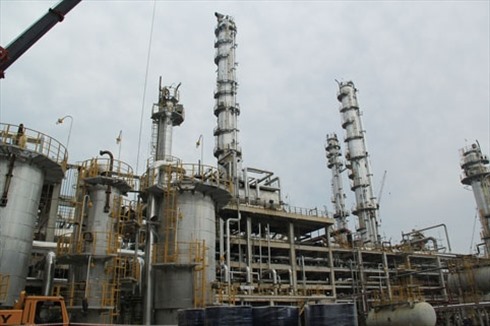Deputy Prime Minister Vuong Dinh Hue has signed Decision No.16 approving the restructuring plan of the Vietnam National Chemical Group (Vinachem).

Deputy Prime Minister Vuong Dinh Hue has signed Decision No.16 approving the restructuring plan of the Vietnam National Chemical Group (Vinachem).
The decision, designated for 2018-2020, aims to improve Vinachem’s structure, capacity, production efficiency and business competitiveness.
While signing the decision, the deputy prime minister stated the need for streamlined and compact business models after the equitisation process at Vinachem and its member companies.
The key focus of Vinachem is State divestment from the mother company and a number of its subsidiaries.
The mother company plans to become equitised in 2018-19, leaving only 50-65 per cent of its charter capital of some VND20 trillion (US$890 million) under State control.
As for Vinachem’s member companies, it plans to retain more than 65 per cent of charter capital at the Vietnam Apatite One Member Limited Company in 2018.
It will also maintain 50-plus per cent to less than 65 per cent stake in seven member companies, less than 50 per cent stake in nine others, and divest completely from 15 companies.
According to Vinachem’s financial report of the second half of 2017, the combined profit from its subsidiaries was VND50 billion ($2.2 million), with a loss of VND192 billion ($8.5 million) by the parent company.
Nonetheless, Vinachem’s 2017 revenue increased by 5.5 per cent compared to 2016.
Starting from 2017, the Ministry of Industry and Trade started inspection of Vinachem’s previous ineffective investments, including an 80 per cent accumulated loss ratio of VND4.2 trillion ($200 million), most notably from the Ninh Binh Nitrogenous Fertiliser Plant project, though no sanctions have been imposed so far.
Vinachem’s main businesses are production and trading of basic chemicals, and mining and processing of raw material for fertilisers, pesticides and chemical production.
According to reports of the Department of Corporate Finance under the Ministry of Finance, the Government is instructing the corresponding agencies to complete the 2018 national equitisation plan at 64 State-owned enterprises (SoEs), with another 18 enterprises in 2019 and one more in 2020.
The State 2018-2020 equitisation scheme focuses on State capital withdrawal from large-scale enterprises, with a wide scope of business and high structural and financial complexity.
The Government has specially requested the participation of strategic investors with a strong financial background and management capacity, and has asked the SoEs to carefully prepare, process and audit themselves before the equitisation process. — VNS
- Tags
- Vinachem
- Chemical
- Fertiliser





